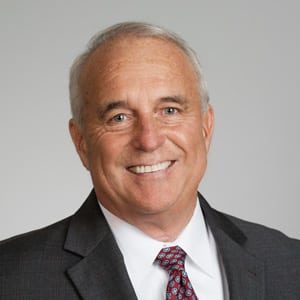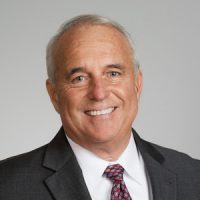
Home » Trump’s budget proposal could negatively affect state ag budget
Trump’s budget proposal could negatively affect state ag budget

June 15, 2017
It’s too early to tell how the Trump administration will affect agriculture in Eastern Washington. But if the president’s budget proposal for the U.S. Department of Agriculture survives intact, it could chop a serious chunk out of the Washington Department of Agriculture’s budget.
 Derek Sandison,
Derek Sandison,That’s what Derek Sandison, director of the state agriculture department, said in an interview with the Tri-Cities Area Journal of Business.
“It is still too early to judge the effects of Secretary (Sonny) Perdue’s policies on Washington agriculture,” Sandison said. Congress has not yet come up with its own federal budget proposal for 2018, with several GOP congressional members saying the Trump proposal is too draconian and is likely dead on arrival.
The Trump administration proposes cutting the federal agricultural department’s budget by 21 percent — the third largest percentage in cuts of a federal agencies. Only the U.S. Environmental Protection Agency and the U.S. Department of State face bigger cuts in their budget percentage-wise.
The proposal trims money going to crop insurance by 36 percent, dramatically cuts farm subsidies and eliminates several rural development programs that tackle infrastructure, utilities and technology for rural communities. The Trump budget would also cut 5,263 federal agriculture jobs — a 5.5 percent reduction.
Roughly 17 percent of the state agriculture department’s annual operating budget comes from federal funding. The department has asked the state Legislature for $198 million for 2017-19.
“Thus, a cut as significant as that proposed by the Trump administration would certainly have an adverse effect on (the state agriculture department) and Washington agriculture. We recognize, however, that we are only in the early stages of the federal budget process,” Sandison said.
He continued: “We are and will continue working with our congressional delegation and through our national organization, the National Association of State Departments of Agriculture, to stress the importance to our agricultural industry of federal programs such as the Specialty Crop Block Grant, Market Access, invasive species control, animal disease prevention and conservation programs.”
Meanwhile, the Trump administration is in the process of appointing a former campaign advisor and former conservative radio talk show host Sam Clovis as the lead scientist at the U.S. Department of Agriculture. He has no hard science nor agriculture background — and will be the first USDA undersecretary of research, education and economics to lack that experience. He is a former economics professor at Morningside College in Sioux City, Iowa.
Clovis will be in charge of the federal agriculture department’s climate change programs. Both he and Perdue do not believe humans cause climate change. Meanwhile, increasing temperatures have been blamed for smaller and earlier snowmelts in the Cascade Mountains, which have shrunk the amount of irrigation water available to the Yakima River Basin later in the year.
“The federally and privately funded research work being conducted by Washington State University and the USDA’s Agricultural Research Service helps to keep our state’s agricultural industry on the cutting edge of technology. We want to maintain that edge,” Sandison said.
“At this point, it is too soon to know whether changes in leadership at USDA will translate into a diminution of the level of federally supported agricultural research. Like others in the industry, I am waiting to see how things develop, but stand ready to take action as needed to support agricultural research.”
Local News Agriculture
KEYWORDS june 2017





